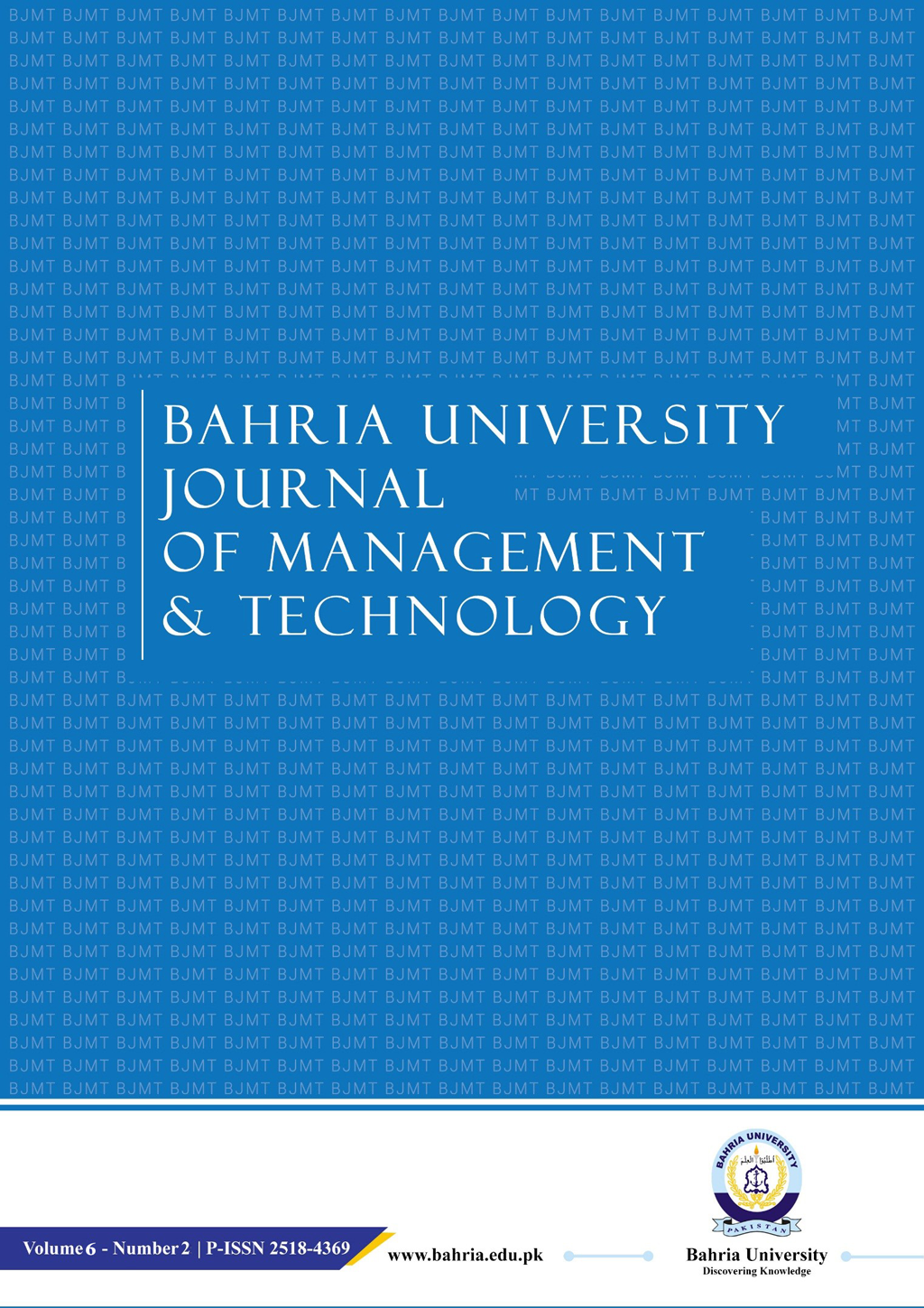COMPARING VALUE - BASED AND TRADITIONAL MEASURING TOOLS. EVIDENCE FROM PAKISTAN
DOI:
https://doi.org/10.62533/bjmt.v6i2.69Keywords:
EVA, MVA, Stock Return, Earning Per ShareAbstract
This paper's primary goal is to evaluate the assertion that value-based measures are preferable to traditional accounting based financial-performance measures, such as profit after tax (PAT), earnings per share (EPS), return on assets (ROA), return on equity (ROE), and return on investment (ROI), in the non-financial sector of Pakistan, while also providing empirical evidence to support the claim. Additionally, it evaluates and tests the informational value of different performance measures and how they relate to stock return.
The sample of 97 non-financial Pakistani companies included in this study was obtained from the Pakistan Stock Exchange (PSX) between 2016 and 2021. The information richness of value-based measurements and conventional performance measures in explaining shareholders' returns is investigated using a variety of regression models.
Relative information content tests shows that traditional accounting-based measures such as EPS, ROE and ROA performed better than value based measures in explaining the returns of Pakistan non-financial companies. Incremental information content of value based measures doesn’t have any contribution to information content above traditional performance measures. The claim of superiority of value based measures over accounting-based measures in association with shareholder returns is proved invalid in Pakistan non-financial companies.
According to the study's findings, value-based financial performance indicators are not any better at explaining stock returns of Pakistani non-financial enterprises than traditional accounting-based financial performance measures. Panel data are tested using the Hausman's test for fixed and random effects, the variance inflation factor (VIF) test for multicollinearity, and the Durbin-Watson test for autocorrelation in order to ensure substantial results.


